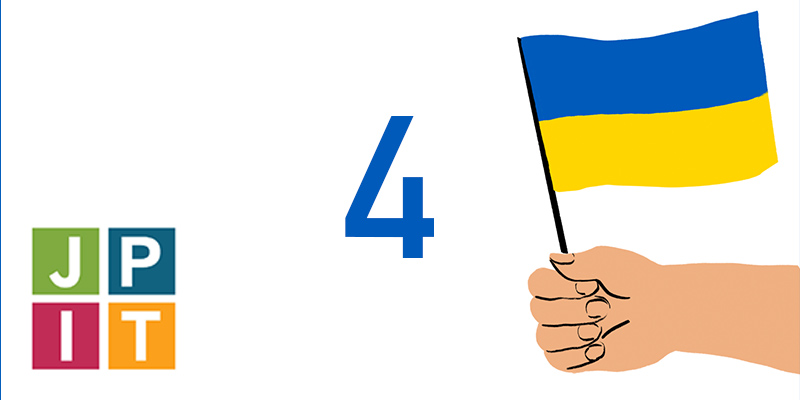 4 The role of the Churches during the conflict
4 The role of the Churches during the conflict
Churches in Ukraine
The majority of Christians in Ukraine are Orthodox, but there are also significant numbers of Catholic and Baptist churches.
What is the situation of Orthodox Churches in Ukraine?
There are two main Eastern Orthodox Churches involved in the region:
-
The Ukrainian Orthodox Church - Moscow Patriarch (12,410 parishes in 2020)
-
The Orthodox Church of Ukraine (7,097 parishes in 2020)
The Orthodox Church of Ukraine was established at the Unification Council in 2018 and granted autocephaly on 5th January 2019. The Russian Orthodox Church challenged Constantinople on this decision, boycotting the Pan-Orthodox Council and breaking off relations with the Ecumenical Patriarchate. This has made the Russian Orthodox Church increasingly isolated within the Orthodox community.
The Ukrainian Orthodox Church - Moscow Patriarch was established in 1990, under the jurisdiction of the Russian Orthodox Church. Since the invasion of Ukraine, many parishes have left the Moscow Patriarch and joined the Orthodox Church of Ukraine. On May 27th 2022, the Ukrainian Orthodox declared its independence and church leaders condemned the invasion but there remains some doubt as to how independent the Orthodox Church of Ukraine actually is in practice [see: https://www.reuters.com/world/europe/moscow-led-ukrainian-orthodox-church-breaks-ties-with-russia-2022-05-28].
The Ukrainian Parliament has passed legislation that would allow local authorities to ban the Ukrainian Orthodox Church [see Church Times article Ukraine attempts to ban Moscow-linked UOC] and some regions have acted and prevented churches from meeting [see CNE News article Ukraine Council of Churches supports ban on Russia-affiliated church].
How have the wider Orthodox Community responded to the war?
The global Orthodox community comprises many communities and traditions but affiliate with the patriarchs of either the Russian Orthodox Church or the Ecumenical Patriarchate of Constantinople. The latter family has been outspoken on the heresy of the Russian Orthodox Church in supporting the war. On March 13th 2022, more than 280 Russian Orthodox priests and church officials around the world signed an open letter expressing opposition to Russia’s invasion and declaring Patriarch Kirill’s ‘Kievian Rus’ theology a heresy [see A Declaration on the "Russian World" (Russkii mir) Teaching - Public Orthodoxy]. Support for this statement has now grown to 1,500 orthodox leaders, clergy and scholars.
What are the links with Methodist and United Reformed Churches in Ukraine?
The United Methodist Church (UMC) has congregations in both Russia and Ukraine to whom the Methodist Church in Britain relate directly as well as through the European Methodist Council. Historically, Russian and Ukrainian Methodist churches fell within the Eurasia Episcopal Area, overseen by the UMC Bishop based in Moscow. The invasion has accentuated the already difficult political dynamics for these churches and in April 2022 Ukrainian and Moldovan United Methodists left the Eurasia Episcopal Area and joined the Nordic and Baltic Episcopal area.
The United Reformed Church has relationships with a number of small churches in both Ukraine and Russia, some directly and more through the Communion of Protestant Churches in Europe (CPCE). The CPCE condemned the Russian attack as a “breach of international law and a violation of human rights”. The URC has particular links with the Transcarpathian Reformed Church of Ukraine, which has around 100 congregations, mainly in the west of the country.
How has the Baptist Church in Ukraine responded?
The Baptist Church has a significant presence in Ukraine with around 2,300 local congregations and approximately 110,000 members. The Baptist Theological Seminary reported that at least 400 churches have been lost in Ukraine since February 2022 [see: Ukrainian Seminary President: 400 Baptist Churches Gone...... | News & Reporting | Christianity Today]. Many pastors have been displaced from warzones and there are concerns about those left behind without spiritual leadership. The Ukrainian Baptist churches have played a key role in relief efforts in Ukraine, ranging from evacuation and resettlement to providing spiritual support.
Ecumenical relations in Europe and beyond
How have the Russian Orthodox Church in the UK responded?
In Great Britain and Ireland the Russian Orthodox Church, Diocese of Sourozh is a Diocese of the Russian Orthodox Church - Moscow Patriarchate. The Church’s membership have differing views on the invasion [See the address of Fr Stephen Platt at the Church of England General Synod in July 2022 – page 77-78 See also a report of a discussion hosted by the Religion Media Centre Religion at the heart of understanding Russia’s claim on Ukraine News]. A second Eastern Orthodox Church in the UK, the Russian Orthodox Church Outside Russia (ROCOR) Diocese of Great Britain and Eastern Europe [see Russian Orthodox Diocese of Great Britain and Western Europe | Russian Orthodox Diocese of Great Britain and Western Europe and report in the Church Times ‘Our first response must be prayer’], is self-governing church that is independent of the Russian Orthodox Church - Moscow Patriarchate but part of the Russian Orthodox family.
What international dialogue between churches is taking place?
Dialogue is taking place utilising a range of existing partner relationships and new initiatives. The World Council of Churches will use its forums as a space for dialogue with the Russian Orthodox Church, rather than suspending it. The Vatican and the WCC [see WCC general secretary to Patriarch Kirill: “the war in Ukraine must come to an end” | World Council of Churches and Patriarch Kirill meets with delegation of the World Council of Churches] both seek to assist in dialogue across the schism that has taken place between the Ecumenical Patriarchate and the Russian Orthodox Church. The Russian Orthodox Church is being used by the Government of Russia as an organ of state and this places limitations on the nature of the dialogue than can take place [see Russian priest sanctioned for praying for peace]. The Conference of European Churches has recently launched ‘Pathways to Peace’ that is establishing dialogue on Ukraine across churches and with the European Union.